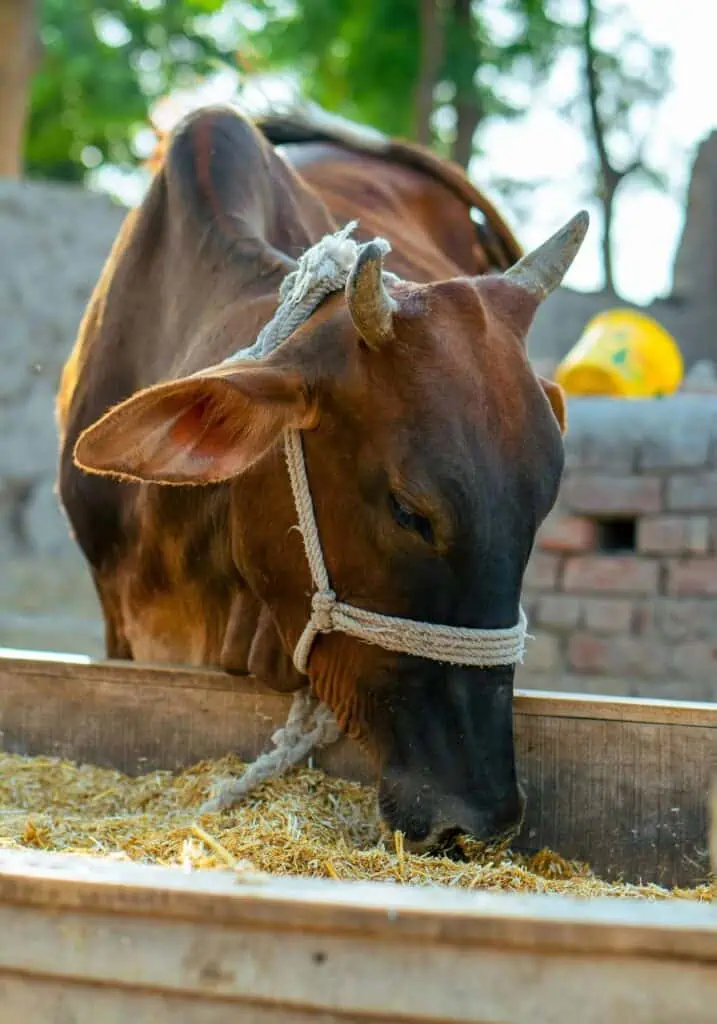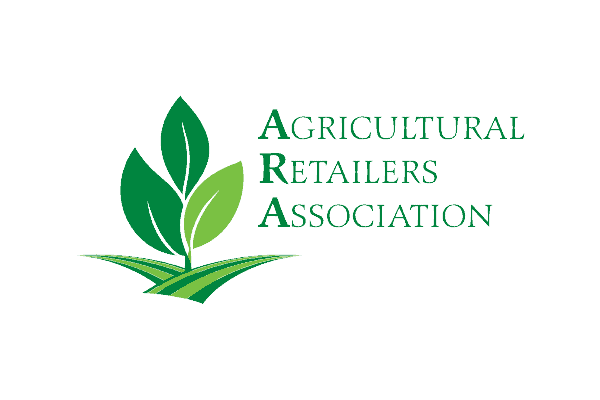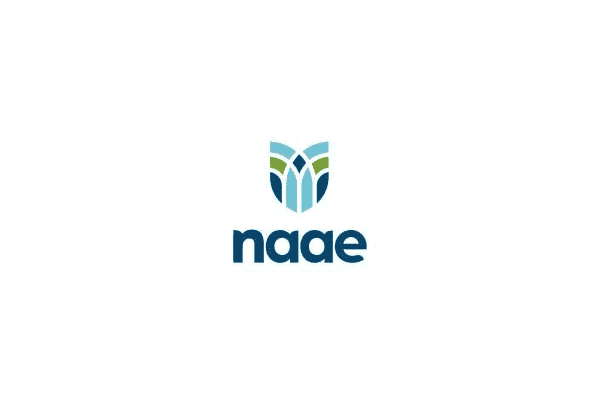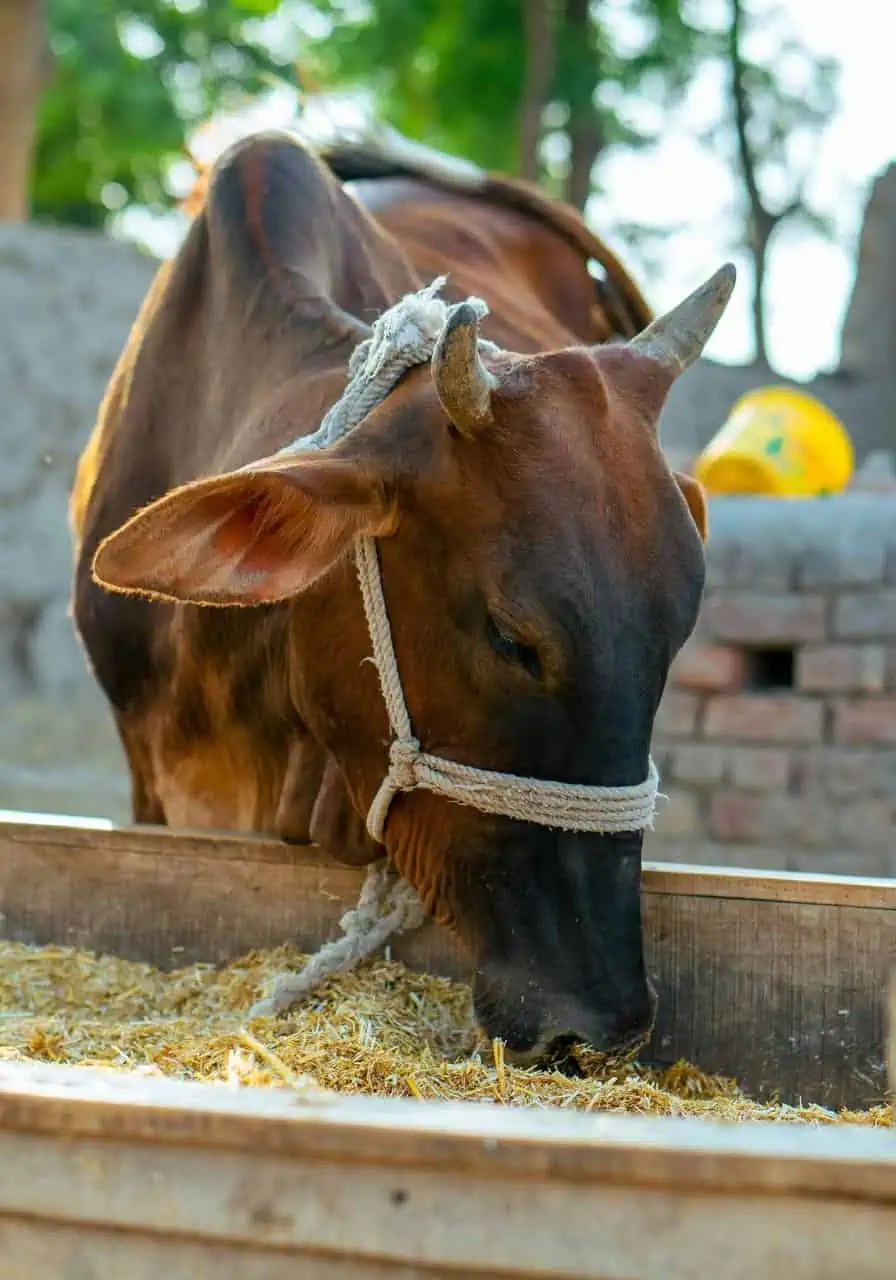Agricultural Retail Leadership

The Future of Farm Supply Retail: Trends and Innovations
The farm supply store manager profession represents a vital link between agricultural producers and the essential products they need for successful operations.
These specialized retail leaders oversee businesses that provide farmers, ranchers, and hobby growers with critical supplies including seeds, fertilizers, livestock feed, equipment, tools, and animal health products.
Farm supply store management requires a unique blend of retail expertise, agricultural knowledge, and business acumen to effectively serve the diverse needs of agricultural customers while maintaining profitable operations. This role is part of our Agriculture, Forestry & Fisheries career cluster.
The role encompasses inventory management, staff supervision, customer relationship building, product procurement, and strategic business planning—all within the context of seasonal agricultural cycles and changing rural market dynamics.
As essential businesses supporting food production systems, farm supply stores provide stable career opportunities across agricultural regions worldwide. For those interested in combining retail management skills with agricultural industry knowledge, the farm supply store manager position offers rewarding career potential with opportunities for advancement into broader agribusiness roles, regional management, or specialized agricultural sales and distribution leadership.
Agricultural Supply Retail Industry Overview and Market Trends
The global demand for farm supply store managers remains strong as agricultural productivity continues to intensify worldwide, requiring sophisticated inputs and equipment managed by knowledgeable retail professionals. Job market conditions vary by region, with opportunities concentrated in rural and agricultural areas where farming operations of various scales require consistent access to supplies and equipment. Farm supply businesses range from small independent stores serving local communities to large agricultural cooperatives and corporate chains with multiple locations, creating diverse management environments within the sector.
Current agricultural retail industry trends reflect both challenges and opportunities facing the farm supply sector. Agribusiness consolidation has changed the competitive landscape, with larger operations gaining market share while independent stores often specialize in niche markets or superior customer service to remain competitive. Climate change impacts have altered traditional growing seasons and crop selections in many regions, requiring farm supply managers to adapt inventory and product offerings to changing agricultural practices. Additionally, the growing emphasis on sustainable agriculture has expanded demand for organic inputs, biological controls, and environmentally friendly products, creating new product categories and customer education needs within farm supply operations.
Technological advancement is transforming traditional farm retail operations, with digital inventory systems, sophisticated point-of-sale technology, and customer relationship management software becoming standard tools. E-commerce has significantly impacted the sector, with many farm supply businesses developing online sales channels to complement brick-and-mortar operations. These digital transformations require farm store managers with technical proficiency alongside traditional agricultural knowledge. The integration of precision farming technologies has also changed product offerings, with many stores now selling and supporting GPS systems, sensors, drones, and data management solutions for modern farming operations. These developments have created new specialized roles in farm supply retail, requiring managers who can effectively blend traditional agricultural expertise with modern retail business practices.
3. Farm Store Management Job Availability & Global Salary Comparison
📌 Farm Supply Store Manager Job Availability Assessment
Farm retail management positions span diverse operational settings, with varying entry requirements and advancement opportunities:
- Primary Employment Sectors: Independent farm supply stores, agricultural cooperatives, rural retail chains, feed mills with retail operations, equipment dealerships, and garden centers with agricultural departments
- High-Demand Positions: Store managers, product buyers, agribusiness sales coordinators, department supervisors (feed, seed, equipment), and regional managers
- Leading Regions for Farm Retail Jobs: Midwestern United States, Rural Canada, Agricultural regions of Australia, New Zealand, United Kingdom, Western Europe, and developing agricultural markets in Asia and South America
- Qualification Requirements: Most positions require retail management experience, with higher-level roles often requiring agricultural education or substantial industry experience
- Essential Certifications: Retail management training, agricultural product knowledge certifications (pesticide application, seed treatment, animal nutrition), and business management credentials
📌 Farm Supply Store Manager Average Pay Grade (Annual Salary)
Compensation varies significantly based on location, store size, sales volume, and management responsibility:
- USA: $40,000 – $85,000+ (higher in larger operations and corporate chains)
- UK: £30,000 – £65,000+ (premium for specialized agricultural knowledge)
- Canada: CAD $45,000 – $90,000+ (particularly strong in prairie provinces)
- Australia: AUD $50,000 – $95,000+ (higher in areas with intensive agriculture)
- New Zealand: NZD $45,000 – $85,000+ (strong in dairy farming regions)
- Europe: €35,000 – €80,000 (varies by country, with higher wages in Northern Europe)
- Asia & South America: $15,000 – $60,000 (significant regional variation)
Many farm supply store managers receive additional compensation through performance bonuses tied to sales targets, profit sharing in cooperative structures, and commission on specific product categories. Rural locations may also offer housing benefits or lower living costs, effectively increasing the value of the compensation package.
📌 Farm Retail Management Career Potential Grade
⭐⭐⭐⭐ High Career Growth Potential in Agricultural Retail & Agribusiness
The farm supply retail field offers substantial career development opportunities:
- Store Hierarchy: Progression from department manager to store manager to multi-location or regional manager
- Specialization Development: Becoming an expert in specific agricultural product lines (equipment, animal health, crop inputs)
- Cooperative Leadership: Advancement within agricultural cooperative management structures
- Corporate Growth: Movement into executive roles within larger agricultural retail corporations
- Entrepreneurial Path: Leveraging experience to purchase or establish independent farm supply operations
Career growth typically requires a combination of retail performance metrics, agricultural knowledge development, relationship building within farming communities, and increasingly, digital retail competencies. The essential nature of agricultural inputs ensures ongoing demand for qualified managers who understand both the business and agricultural aspects of farm supply operations.
4. Essential Agricultural Retail Skills & Farm Store Management Requirements
Successful farm supply store managers combine retail business expertise with agricultural knowledge and strong customer relationship abilities. Employers consistently seek candidates with the following critical skills:
Retail Management & Agricultural Sales Expertise
- Developing effective store layouts that showcase seasonal farm products
- Creating merchandising strategies for diverse agricultural supplies
- Implementing pricing strategies for competitive farm markets
- Tracking sales performance across multiple product categories
- Balancing inventory investments across seasonal agricultural cycles
- Coordinating promotional activities aligned with farming calendars
- Analyzing sales data to optimize farm product offerings
Product Knowledge & Agricultural Supply Procurement
- Understanding the application and benefits of various crop inputs
- Recognizing quality factors in livestock feeds and supplements
- Evaluating farm equipment features and appropriate applications
- Maintaining knowledge of seed varieties and regional growing conditions
- Sourcing products from agricultural manufacturers and distributors
- Negotiating favorable terms with farm supply vendors
- Staying current on new agricultural product developments
Business Operations & Farm Store Logistics Management
- Developing annual business plans for agricultural retail operations
- Managing cash flow through seasonal farming cycles
- Implementing inventory control systems for diverse farm products
- Coordinating delivery services for bulk agricultural supplies
- Maintaining appropriate stock levels of time-sensitive products
- Processing special orders for specialized farming equipment
- Overseeing store maintenance and agricultural supply warehousing
Team Leadership & Farm Retail Staff Development
- Hiring employees with appropriate agricultural knowledge
- Training staff on technical aspects of farm products
- Scheduling effectively to cover peak agricultural seasons
- Developing product specialists for complex farm supplies
- Implementing performance metrics for agricultural sales staff
- Creating incentive programs for farm product sales
- Building collaborative teams that serve agricultural communities effectively
Customer Service & Farming Community Relationship Building
- Providing knowledgeable advice on agricultural product applications
- Building loyalty with multi-generational farming operations
- Creating educational events for agricultural customers
- Resolving issues with complex farm equipment or inputs
- Understanding the urgency of in-season farming supply needs
- Developing credit programs appropriate for agricultural business cycles
- Supporting local agricultural organizations and events
Technology & Digital Agricultural Sales Implementation
- Operating point-of-sale systems with agriculture-specific capabilities
- Managing e-commerce platforms for farm supply sales
- Utilizing customer relationship management tools to track farmer preferences
- Implementing inventory management software for agricultural supplies
- Leveraging social media to connect with farming communities
- Analyzing digital sales data to improve agricultural product offerings
- Adapting to technology changes in modern farming operations
Regulatory Compliance & Agricultural Safety Standards Management
- Ensuring proper storage and handling of agricultural chemicals
- Maintaining appropriate licensing for restricted agricultural products
- Implementing safety protocols for farm equipment demonstrations
- Complying with feed and seed labeling requirements
- Understanding fertilizer and pesticide regulations
- Maintaining records for agricultural chemical sales
- Training staff on proper handling of hazardous farm products
Educational requirements vary across the farm supply industry, with successful managers coming from both formal agricultural education backgrounds and practical farming or retail experience. Most management positions require a combination of retail business understanding and substantial knowledge of agricultural practices relevant to the local farming community. Ongoing professional development through industry associations, agricultural product training, and business management education is essential for long-term success in this evolving retail sector.
5. Farm Supply Management Career Paths and Advancement Opportunities
The farm supply retail industry offers several distinct career progression routes, from traditional store management to specialized agricultural product roles and broader agribusiness leadership. Understanding these potential trajectories can help aspiring farm store managers strategically develop their skills for long-term career growth.
Entry-Level Agricultural Retail Positions
- Farm Supply Store Assistant: Supporting general operations and customer service
- Agricultural Sales Representative: Focusing on specific product lines and farmer relationships
- Inventory Control Clerk: Managing stock levels and product ordering
- Department Associate: Specializing in feed, seed, equipment, or animal health sections
- Customer Service Specialist: Handling farmer inquiries and agricultural product information
These roles typically require basic retail skills and agricultural interest, providing foundational experience in farm store operations.
Mid-Level Farm Store Career Advancement
- Farm Supply Store Manager: Overseeing complete store operations and performance
- Agribusiness Sales Coordinator: Managing key accounts and agricultural product marketing
- Agricultural Product Buyer: Sourcing and negotiating for specific farm supply categories
- Department Manager: Leading specialized sections like equipment or crop inputs
- Feed Mill Operations Supervisor: Coordinating feed production with retail distribution
Advancement to these positions usually requires 3-5 years of experience, demonstrated sales performance, and substantial agricultural product knowledge.
Senior-Level Agricultural Retail Opportunities
- Regional Farm Retail Manager: Overseeing multiple store locations and market development
- Agribusiness Consultant: Providing expertise to farm operations and retail businesses
- Supply Chain Director (Agriculture Sector): Managing complex agricultural product distribution
- Cooperative General Manager: Leading farmer-owned agricultural supply businesses
- Wholesale Distribution Manager: Connecting manufacturers with farm retail networks
These positions typically require 7-10+ years of experience, proven business management success, and comprehensive understanding of both retail operations and agricultural markets.
Advanced Farm Supply Industry Leadership Roles
- Chief Operations Officer (Agricultural Retail Chain): Directing enterprise-wide farm supply operations
- International Agribusiness Executive: Managing global agricultural input distribution
- Government Agriculture Policy Advisor: Shaping regulations affecting farm supply industries
- Agricultural Retail Entrepreneur: Owning and expanding independent farm supply businesses
- Agricultural Equipment Dealership Owner: Specializing in machinery sales and service
The most successful career transitions in farm supply management typically involve:
- Building deep knowledge of specific agricultural sectors (livestock, crops, horticulture)
- Developing strong financial and business management capabilities
- Creating extensive networks within farming communities and agricultural suppliers
- Gaining experience across multiple aspects of operations (purchasing, sales, inventory)
- Adapting to technological changes in both retail systems and agricultural practices
For international career advancement, understanding regional agricultural practices, regulatory environments for farm inputs, and cultural aspects of rural business relationships can significantly enhance professional opportunities in the global agricultural retail sector.
6. Farm Store Manager Resume Writing Strategies for Agricultural Retail Applications
Creating an effective farm supply store manager resume requires highlighting both your retail management expertise and agricultural knowledge in a format that appeals to rural businesses, cooperatives, and agricultural retailers. Your application letter should emphasize your understanding of farmers’ needs and specific contributions to agricultural retail operations.
Effective Farm Supply Management Resume Structure
- Professional Summary: Begin with a concise overview highlighting your agricultural retail experience, store management accomplishments, and key agribusiness skills
- Core Competencies Section: List 6-8 relevant abilities that align with farm supply operations
- Retail Management Experience: Detail your store leadership history with specific agricultural retail responsibilities and achievements
- Agricultural Knowledge: Highlight your understanding of farming practices, seasonal needs, and product applications
- Business Performance: Quantify sales growth, inventory management improvements, and customer development in previous roles
Best Resume Format for Farm Supply Store Managers
- Choose a clean, professional layout that balances retail and agricultural expertise
- Use a reverse-chronological format for management experience
- Limit your resume to two pages, focusing on relevant agricultural retail accomplishments
- Incorporate strategic section headers that include farm supply industry terminology
- Use consistent formatting for certifications and agricultural specializations
Key Elements to Highlight in Your Farm Store Management CV
- Sales Performance: Specify growth percentages and revenue achievements in agricultural retail
- Inventory Management: Detail experience with seasonal farm products and just-in-time inventory systems
- Customer Relationships: Emphasize development of loyal farmer customer base and community connections
- Staff Development: Note training programs implemented for agricultural product knowledge
- Multi-Department Oversight: Highlight experience managing diverse farm store departments (feed, seed, equipment)
Essential Farm Supply Manager Skills for Resumes
✔ Agricultural product knowledge and application expertise ✔ Seasonal inventory planning and management ✔Farm equipment sales and service coordination ✔ Livestock feed and animal health product merchandising ✔Fertilizer and crop input sales strategies ✔ Rural customer relationship development ✔ Agricultural cooperative or farm store profit management ✔ Farm community event coordination and marketing
Sample Achievement Bullets for Agricultural Retail Resumes
Instead of listing general duties, focus on specific contributions:
- “Increased annual sales by 22% through implementation of seasonal product rotation strategy aligned with local agricultural calendar”
- “Developed new livestock nutrition department that generated $450,000 in additional annual revenue”
- “Reduced inventory carrying costs by 15% while maintaining 98% in-stock rate on essential farming supplies”
- “Built relationships with 75+ commercial farming operations, increasing average transaction value by 35%”
Remember to tailor your resume for each application, emphasizing experience relevant to the specific agricultural focus of the target employer. For cooperative businesses, highlight community engagement; for corporate chains, emphasize consistent performance metrics; for independent stores, stress customer relationship development and local market knowledge.
A professional resume builder or cv maker can help structure your farm retail management credentials effectively, ensuring your agricultural business experience is presented in an organized format that highlights your most valuable skills for potential employers.
7. Farm Supply Retail Interview Questions and Agricultural Management Preparation Guidance
Succeeding in farm supply store manager interviews requires demonstrating both your retail leadership capabilities and your understanding of agricultural customers’ needs. Prepare for these common questions and scenarios to make a positive impression on potential employers in the agricultural retail sector.
Common Farm Supply Store Manager Interview Questions
Agricultural Retail Management Philosophy
- “How do you balance inventory investment with seasonal farming needs?”
- “What approach do you take to staff training on technical agricultural products?”
- “How do you develop relationships with commercial farming operations?”
Agricultural Product Knowledge Assessment
- “How would you advise a farmer choosing between seed varieties for our region?”
- “What factors do you consider when recommending livestock feed programs?”
- “How do you stay current on new agricultural technology and products?”
Operational and Business Scenarios
- “How would you handle a situation where a critical farm input is backordered during planting season?”
- “What strategies would you implement to increase sales during slower agricultural seasons?”
- “How would you assess the performance of different farm store departments?”
Customer Service and Agricultural Community Engagement
- “How do you build credibility with experienced farmers who know their operations well?”
- “What community outreach activities have you found effective for farm supply businesses?”
- “How do you handle customer complaints about product performance in agricultural applications?”
Farm Retail Management Interview Preparation Strategies
Before the Interview:
- Research the store’s agricultural product mix and customer demographics
- Understand the local farming operations and predominant agricultural activities
- Prepare examples demonstrating your retail management skills in agricultural contexts
- Review seasonal farming calendars for the region to understand business cycles
During the Interview:
- Connect your retail experience to specific agricultural business challenges
- Demonstrate knowledge of farm supply products and their applications
- Show awareness of the critical timing of agricultural supply needs
- Emphasize your ability to build relationships in rural communities
Practical Demonstrations: Many farm supply interviews include applied components:
- Agricultural product knowledge assessments
- Case studies involving seasonal inventory planning
- Role-playing customer interactions with technical farming questions
- Financial analysis of department performance scenarios
Professional Presentation:
- Dress appropriately for an agricultural business setting (professional but practical)
- Bring examples of successful merchandising, marketing, or inventory strategies
- Consider preparing a brief business plan showcasing your approach to farm store management
- Demonstrate familiarity with both business metrics and agricultural practices
Remember that farm supply businesses value practical knowledge and community connection alongside business management skills. Showcase your understanding of farming operations, ability to communicate technical information clearly, and appreciation for the critical role farm stores play in agricultural communities.
8. Agricultural Retail Career Outlook and Farm Supply Business Next Steps
The farm supply store management profession continues to offer stable career opportunities despite evolving market conditions in the agricultural sector. While consolidation has reduced the number of independent stores in some regions, the essential nature of agricultural inputs ensures ongoing demand for qualified managers who understand both retail operations and farming practices.
Future outlook for farm supply management careers varies by region and store type. Larger chain operations and agricultural cooperatives typically offer the most structured advancement paths, while independent stores may provide opportunities for eventual ownership or profit-sharing arrangements. Specialized knowledge in growing areas like precision agriculture technology, organic production inputs, or livestock nutrition can create competitive advantages for career advancement.
For those pursuing a career in farm supply management, strategic skill development is essential. Beyond fundamental retail management abilities, focus on building technical knowledge in key agricultural product categories relevant to your region. Consider obtaining certifications in specialized areas such as agronomic consulting, animal nutrition, or agricultural business management. Understanding the financial aspects of farm operations helps in developing effective credit programs and seasonal marketing strategies that align with agricultural cash flow patterns.
Your professional development should include building connections within both the agricultural retail industry and local farming communities. Participation in agricultural associations, trade shows, and continuing education demonstrates commitment to the industry. Consider using resources like CV4Students to create a professionally structured resume that effectively showcases your retail management experience and agricultural knowledge.
The farm supply retail sector offers rewarding careers that combine business management with meaningful support of essential agricultural production. While the work often involves long hours during peak farming seasons and requires adapting to ever-changing agricultural technologies and practices, it provides the satisfaction of playing a vital role in food production systems while building deep connections within rural communities.
Explore More in This Industry
Looking for other career options in this field?
👉 View more Agriculture, Forestry & Fisheries careers.
Resources & Organizations
These featured organizations advance farm supply store operations through education, research, policy advocacy, and professional development. Their contributions strengthen agricultural retail businesses and support farming communities worldwide.
Agricultural Business Chamber serves as a dynamic association of agribusinesses operating across South and southern Africa, advocating for favorable business environments and facilitating industry collaboration. The organization focuses on policy development, market research, and representing agricultural retail interests to government bodies and regulatory agencies.

Agricultural Retailers Association unites agricultural retailers and distributors across the United States to advocate for industry interests while providing professional development and regulatory guidance. As the national voice for ag retailers, ARA educates federal legislators and collaborates with regulatory officials on critical issues affecting agricultural supply businesses.

National Association of Agricultural Educators is a federation of state agricultural educator associations with over 9,000 members dedicated to advancing agricultural education at all levels. The organization provides specialized professional development, promotes agricultural literacy, and strengthens connections between agricultural education and farm supply industry workforce development.
These organizations are featured for their outstanding contributions to farm supply store operations through science, training, and global development.
This Farm Supply Store Manager Career Guide provides general information about the profession globally. Specific requirements, compensation, and opportunities may vary by region, employer type, and individual qualifications. Always research current conditions in your target market when making career decisions.
